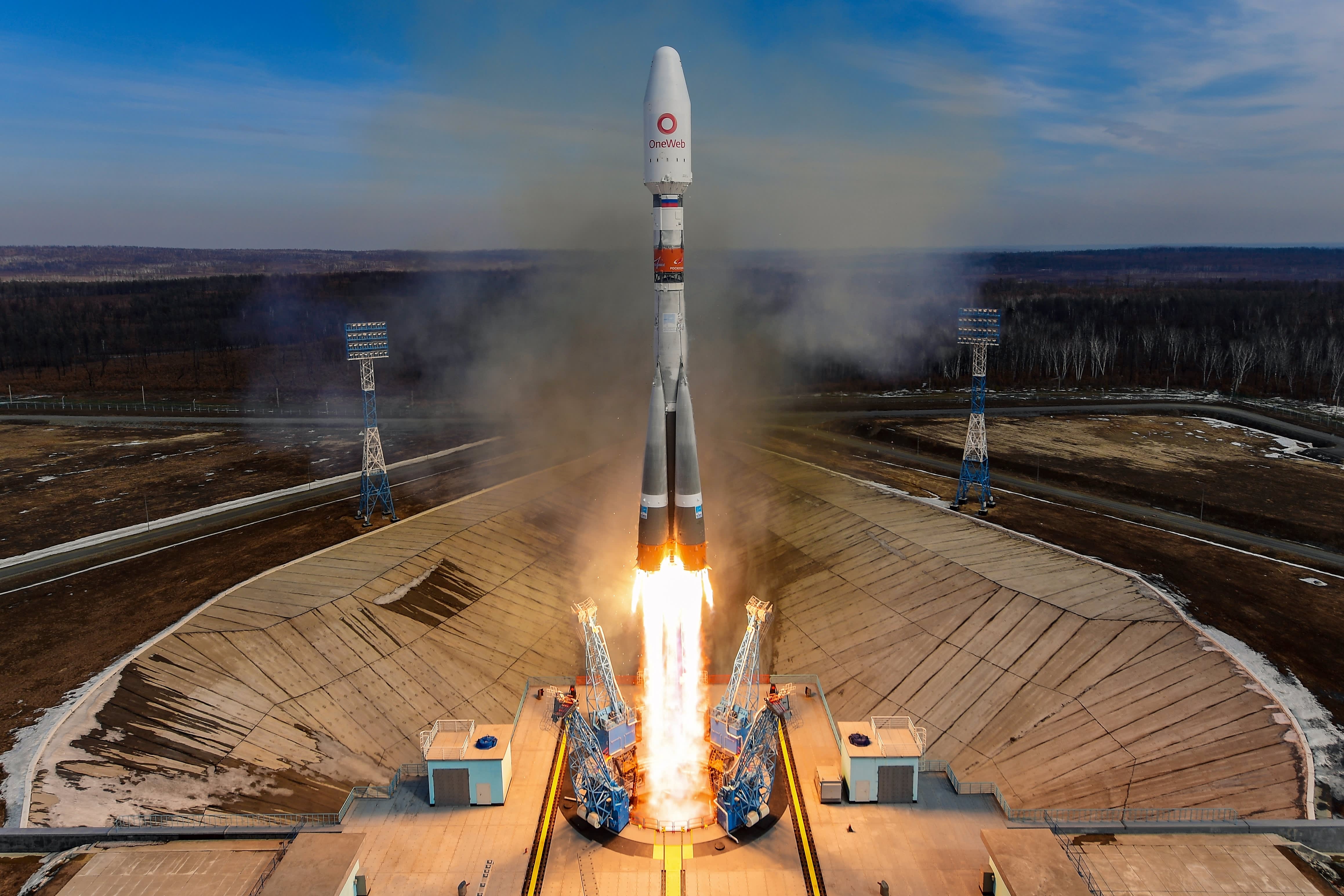Products You May Like
The corporate internet space race has taken a geopolitical turn.
Russian space agency Roscosmos is refusing to launch the next batch of 36 OneWeb internet satellites Friday, unless the company meets the state agency’s demands. Roscosmos head Dmitry Rogozin particularly emphasized that the ultimatum is a response to the U.K. sanctioning Russia over its invasion of Ukraine.
Roscosmos said in a statement that the Soyuz rocket will be removed from the launchpad at Baikonur Cosmodrome in Kazakhstan unless OneWeb meets two demands:
- The U.K. government sells its stake in the company.
- OneWeb guarantees that the satellites not be used for military purposes.
OneWeb and the U.K. government did not respond to CNBC’s requests for comments. Arianespace declined to comment. Arianespace is a subsidiary of European rocket builder ArianeGroup, selling rockets including the Soyuz that are supplied by Roscosmos for OneWeb launches.
The company has launched 428 satellites to low Earth orbit on Soyuz rockets. OneWeb plans to operate a constellation of 650 satellites to provide global internet coverage from space.
OneWeb was rescued from bankruptcy in 2020, with the U.K. government and Indian telecommunications conglomerate Bharti Global taking equity stakes to finance the company’s network.
Space companies have been racing to build next-generation satellite internet networks, largely in low Earth orbit using hundreds or thousands of satellites. OneWeb and SpaceX’s Starlink represent the most mature versions of these concepts. Each has begun to provide service to customers.
But the companies’ approaches are largely distinct.
OneWeb’s business, for instance, depends on multinational cooperation. OneWeb has a diversity of stakeholders across the world, with investors including the U.K. government, Bharti Global, Japanese investment giant SoftBank, European communications firm Eutelsat, and South Korean conglomerate Hanwha systems.
The company’s path to building its network is also global: OneWeb’s satellites are manufactured in Florida through a joint venture with European aerospace giant Airbus. Its launches are conducted through Arianespace on Russian-built rockets. Countries require regulatory approval for the company to provide service.
By contrast, SpaceX is a private, heavily-verticalized U.S. venture. Elon Musk’s company builds and launches Starlink internet satellites itself. SpaceX provides Starlink service in more than two dozen countries.
The company recently activated service in Ukraine in response to requests from the government. SpaceX also sent Starlink terminals to Ukraine, with the antennas helping connect the country to the internet amid the Russian invasion.
Additionally, from a launch market perspective, Deutsche Bank analyst Edison Yu wrote in a note on Wednesday that the Ukraine conflict is likely a boon for Musk’s company.
“In the near-term, the clearest winner is SpaceX considering it essentially becomes the only viable backup option for any entity that was reliant on Russian Soyuz rockets,” Yu wrote in a note to investors.
Yu called out Rocket Lab as another potential beneficiary, saying the company’s Electron rocket “could potentially take over some small payload launches.” Meanwhile, Yu emphasized that “the biggest losers would likely be the European Space Agency, OneWeb, and the International Space Station given heavy Russian cooperation.”
Clarification: This story was updated to reflect the role of Arianespace as an ArianeGroup subsidiary.
